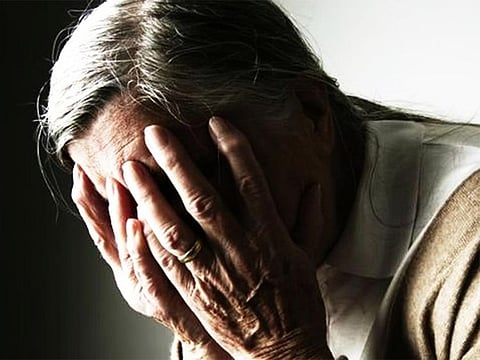Can loneliness kill? Science says 'Yes'
Loneliness isn’t just a personal issue — it’s considered a global public health concern

Feeling lonely might be more than just an emotional ache — it could also harm your health, according to fascinating new research from the University of Cambridge.
Here’s the scoop: loneliness can weaken your immune system and raise the risk of illnesses like heart disease, stroke, and type 2 diabetes.
But there’s good news, too
On the flip side, spending quality time with friends and family could work like a magical health booster.
Social connections may strengthen your immune system and help keep those same diseases at bay.
How do we know this?
Researchers from the UK and China dove into the "proteomes" (a fancy term for all the proteins in your blood) of over 42,000 adults from the UK Biobank.
Their findings, published earlier this month in Nature Human Behaviour, reveal the biological reasons why social bonds are so vital.
The science behind it
Social isolation and loneliness don’t just make you feel down — they can also send your body into overdrive.
When analysing the blood samples, researchers found that loneliness and social isolation were linked to 175 and 26 proteins, respectively.
Most of these proteins are associated with inflammation, immune responses, and even serious conditions like diabetes and heart disease.
Lonely people, the researchers found, have higher levels of certain proteins.
For instance, higher levels of a protein called ADM were found in lonely people.
This protein is involved in stress regulation and even interacts with oxytocin, the "love hormone."
But too much ADM is linked to shrinking brain regions responsible for emotional processing and social behaviour — and, unfortunately, a higher risk of early death.
Another protein, ASGR1, was tied to increased cholesterol and a higher risk of cardiovascular problems. Others were linked to insulin resistance, artery damage, and even cancer progression.
Why it matters
Dr. Chun Shen of Cambridge explains: “The proteins we've identified give us clues to the biology underpinning poor health among people who are socially isolated or lonely, highlighting why social relationships play such an important part in keeping us healthy."
Dr Chun said that there are more than 100,000 proteins and many of their variants in the human body.
AI and high throughput proteomics can help scientists pinpoint some key proteins in prevention, diagnosis, treatment and prognosis in many human diseases.
Could this revolutionise the traditional view of human health? The researchers said while they've known for some time that loneliness affects health, now they see why.
Certain proteins are directly impacted, leading to poor health outcomes.
Loneliness: A public health concern
Prof. Barbara Sahakian, from the Department of Psychiatry at the University of Cambridge chimes in, adding: “These findings drive home the importance of social contact in keeping us well."
She said as more and more people of all ages are reporting feeling lonely, the World Health Organisation has described social isolation and loneliness as a 'global public health concern'.
"We need to find ways to tackle this growing problem and keep people connected to help them stay healthy," Prof Sahakian added.
So what’s the fix?
The takeaway? Social connections aren’t just good for the soul—they’re essential for your body.
Whether it’s grabbing coffee with a friend, calling your family, or joining a community group, staying connected could literally save your life.
The study suggests that social relationships are more than a feel-good factor — they’re a cornerstone of human health. Underestimating their power isn't a healthy thing to do.
So go ahead — message that friend, schedule that family dinner, or plan a get-together.
Your heart (and your immune system) will thank you.


